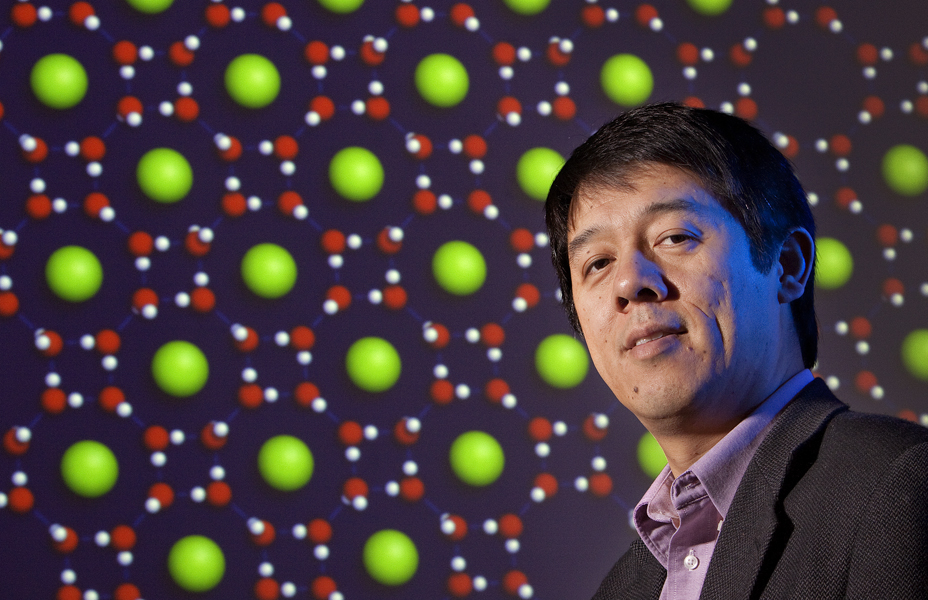
An international research study led by Xiao Cheng Zeng is featured on the cover of the June issue of the Journal of Chemical Theory and Computation.
Zeng, professor of chemistry, and colleagues from UNL, Japan and South Korea, used a series of large-scale computer simulations to gain fundamental insights into protein denaturation.
Protein denaturation is a chemical process in which proteins lose their native structure when a denaturant or elevated temperature is applied. For example, when an egg is cooked, some of its proteins become denatured so that the egg becomes hard.
The researchers designed a nanoscale slit system where the two opposing surfaces are hydrophobic (water-repellent) on one side, but hydrophilic on the opposing side. As such, they can monitor preferential adsorption of denaturant molecules towards two surfaces with dramatically different chemical properties, thereby shedding new light on hydrophobic versus hydrophilic interactions. Both interactions have important implications to protein denaturation.
Zeng said large-scale computer simulation is like a virtual experiment which can be exploited to explore behavior of matters under certain conditions that are impractical or inaccessible in real-world laboratories. With two or three future generations of supercomputers, however, he said direct animation of protein denaturation in real time might become more prevalent.
The research team included Zeng's long-time collaborators, Takahiro Koishi of Fukui University in Japan, Kenji Yasuoka of Keio University in Japan and Soohaeng Yoo Willow of Pohang University of Science and Technology in South Korea. Willow is a former graduate student of Zeng's.
The article is available at http://go.unl.edu/wpn.